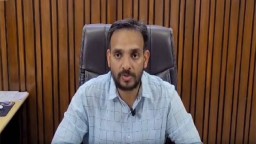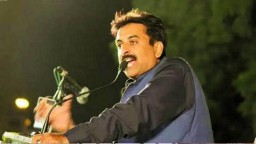Latest News
“GURU NANAK: THE BENIGN REVOLUTIONARY”

Do not be surprised to read the word “Revolutionary” appending Guru Nanak’s name. People associate revolutions with bloody, violent subversions where one exploitative regime is replaced by a more “romantic idea” that is ultimately exploitative. That euphoria in the streets lasts, but temporarily, as the dark shadows of power consume the “new heroes”.
Nanak, however, preached a radically different & ever-flowing revolutionary thought that would alter the minds & hearts of humans forever. It would chisel away the fossilized attitudes, faiths, superstitions & philosophies. His principles gave the people new tools to fight inequality, stagnation & immorality.
Nanak walked across continents preaching innumerable divine messages. However, I will touch upon his three biggest Revolutionary ideas that became the touchstones for all succeeding philosophies. These perceptions were his interpretations of information he plucked from the Natural environment.
WOMEN: His first observation was of women being exploited physically, emotionally and psychologically to the detriment of equality, growth & morality. Ever since that queer depiction of a Caveman hitting a woman on the head and dragging her inside, the brutal exploitation of women has been practised as insidious, though in subtler forms.
Nanak saw that women were gifted with the divine capacity to give birth & carry forward civilization. He was shocked to see evil being perpetrated over this sacredness. Noticing the altruistic nature of women in raising children with patience & care, being the pillars of support to their husbands & families, he was convinced that a woman was not equal to a man........she was in fact a lot higher, next only to God !!
These simple words changed the oldest attitude of man:
“भंड सो क्यों मंदा आखिए, जित जब: राजान, भंड बाजा ना कोए”
{ “why say a woman is any less ; she begets Kings & Queens ; there’s none to equal a woman” }.
LITERATURE: Nanak had preached five articles of faith called Kakkars (कक्कार), so named because their first letter was K. (क).
The most revolutionary among these is “Kavita” (किवता), signifying Literature.
Nanak knew that it was only via literature that human thought could continue to evolve. In one enlightened stroke, he demolished the set-in-stone concept of “gospel truths” that propagated one final truth written in scriptures of different faiths. His very own thought, he preached, was a workin-progress of this evolutionary process. Even Words, he believed, were enslaved, as people captured them in books & scriptures without imbibing their message.
Accepting this view of Nanak, 120 dialects were used to write Guru Granth Sahib (the Holy scripture of Sikhs) to stress that no thought could be a slave to any one language. He thus thawed all frozen thoughts and let them flow freely as ever-expanding wisdom!!
CHARACTER: The biggest challenge before Nanak was to change the egocentric nature of humans to let other revolutionary ideas prosper. For that to happen, he sowed a simple but profound mantra in the hearts of his followers. He broke the inherent selfishness by teaching them to give a portion of their earnings to the needy before consuming their share: { “वंड के शको” }.
This act was further expanded into communities and Gurudwaras in the form of Langar, where wholesome food was served to all without hesitation & prejudice of colour, religion or race.
This ignited brotherhood amongst people and brought bliss into their lives. Best of all, it kindled a heroic flame inside those hearts for battles he foresaw ahead. A HERO, by definition, is one who places others’ interests before his own. Common men were turned into heroes by this simple but singular shift in the consciousness of the SELF.
Thus, 553 years back, a light shone upon the earth to eternalise its revolution. Millions of dark corners were, and continue to be, illuminated by the sapience of a farmer’s son.




.png)
















